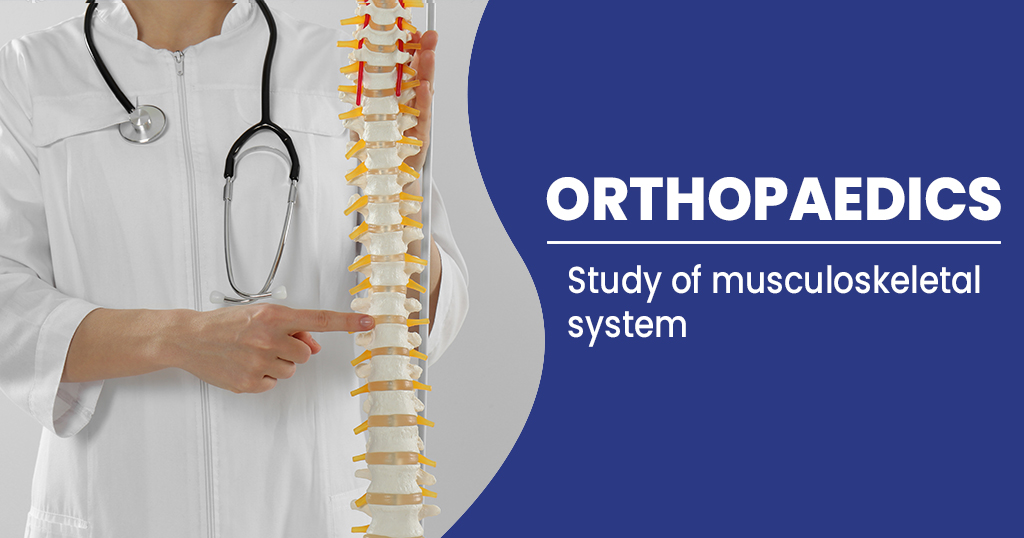Ph.D. in Orthopedics: Introduction, Admission, Registration, Eligibility, Duration, Fees, Syllabus 2024

Introduction:
A Ph.D. in Orthopedics: Advanced Study & Research in Musculoskeletal Health is a doctoral program focusing on the in-depth study of disorders affecting the musculoskeletal system. It encompasses research methodology, biostatistics, ethics, and recent advances in orthopedic science. Candidates explore topics like tissue engineering, biomechanics, and neuro-prosthetics. The program aims to develop experts who can contribute to medical science through innovative research, improving diagnostics, treatments, and patient care in orthopedics.
Admission Process:
- Master’s Degree: Possess a Master’s or equivalent professional degree with a minimum of 55% aggregate marks.
- Entrance Exam: Clear a national or university-level entrance exam.
- Application: Submit an application including transcripts, recommendations, and research proposals.
- Interview: Attend an interview or viva voce to discuss research interests and competencies.
- Selection: Based on academic records, entrance
Eligibility:
- Master’s degree in Orthopedics or related field.
- Minimum 55% marks (50% for SC/ST candidates).
- Passing a national or university-level entrance exam.
- Interview or presentation of research interests.
- Submitting transcripts, recommendations, and research proposals.
- Completing an entrance test by the department/university.
Completion Time:
The completion time for a Ph.D. in Orthopedics can vary depending on the institution and the specific research project. Generally, it can take anywhere from 3 to 5 years to complete. This includes time for coursework, research, and writing and defending a dissertation. Some programs may have a minimum duration, such as six months of coursework, before the research phase begins. It’s important to check with the specific university for their program duration and requirements.
Career Opportunities:
- Academic Positions: As faculty at medical colleges, teaching and conducting research.
- Research Scientists: In medical research institutions, focusing on musculoskeletal health.
- Orthopedic Surgeons: Specializing in surgeries related to bones, joints, and muscles.
- Medical Consultants: Advising on orthopedic care and treatments.
- Pharmaceutical Industry Roles: Research and development of orthopedic drugs and devices.
- Public Health Services: Working on policies and programs for musculoskeletal health.
- Entrepreneurship: Starting clinics or developing new medical technologies.
- Sports Medicine: Working with athletes to prevent and treat injuries
Syllabus:
- Research Methodology: Understanding research concepts, literature review, and problem formulation.
- Biostatistics: Application of statistics to biological fields.
- Ethics: Ethical considerations in research.
- Computer Applications: Utilizing software tools for research.
- Recent Advances: Staying updated with the latest developments in orthopedics.
- Subject Specialization: In-depth study of musculoskeletal health.
- Research and Publication Ethics: Standards for ethical publishing.
Internship Opportunities:
- Clinical Research: Engaging in clinical trials and studies at medical institutions.
- Teaching Assistantships: Assisting in teaching at universities while conducting research.
- Orthopedic Surgery Internships: Gaining practical experience in orthopedic surgery departments.
- Biomechanics Research: Working with biomechanists on movement and mechanics of the body.
- Medical Device Companies: Researching and developing orthopedic devices.
- Sports Medicine Internships: Focusing on athletic injuries and rehabilitation.
- Pharmaceutical Research: Contributing to drug development for musculoskeletal conditions.
- Public Health Internships: Analyzing and improving community musculoskeletal health programs
Scholarship and Grants:
- University Scholarships: Offered by academic institutions based on merit or need.
- Government Fellowships: Such as the Prime Minister’s Fellowship for Doctoral Research.
- Research Grants: For specific projects or areas of study within orthopedics.
- Industry Partnerships: Collaborations with medical companies providing funding.
- International Scholarships: For global students to study at host institutions.
- Professional Society Funds: From orthopedic societies for advancing research.
- Conference Scholarships: For presenting research at international conferences.
- PhD Positions with Stipends: At research institutions or universities.
FAQs:
What are the prerequisites for enrolling?
Typically, a master’s degree in a related field and passing relevant entrance exams.
How long does the program take? I
t usually ranges from 3 to 5 years, including coursework and dissertation.
What kind of research topics are available?
Topics can vary from musculoskeletal tissue engineering to clinical outcome studies.
Are there opportunities for internships?
Yes, internships in clinical research, teaching, or industry may be available.
What career paths can I pursue post-Ph.D.?
Academic positions, research scientists, orthopedic surgeons, and more.
Is funding or scholarships available?
Many institutions offer scholarships, grants, and fellowships.
Can I work while studying?
Part-time opportunities may exist, but it depends on the program’s intensity.
What is the focus of the dissertation?
It’s an original research project contributing to the field of musculoskeletal health.
